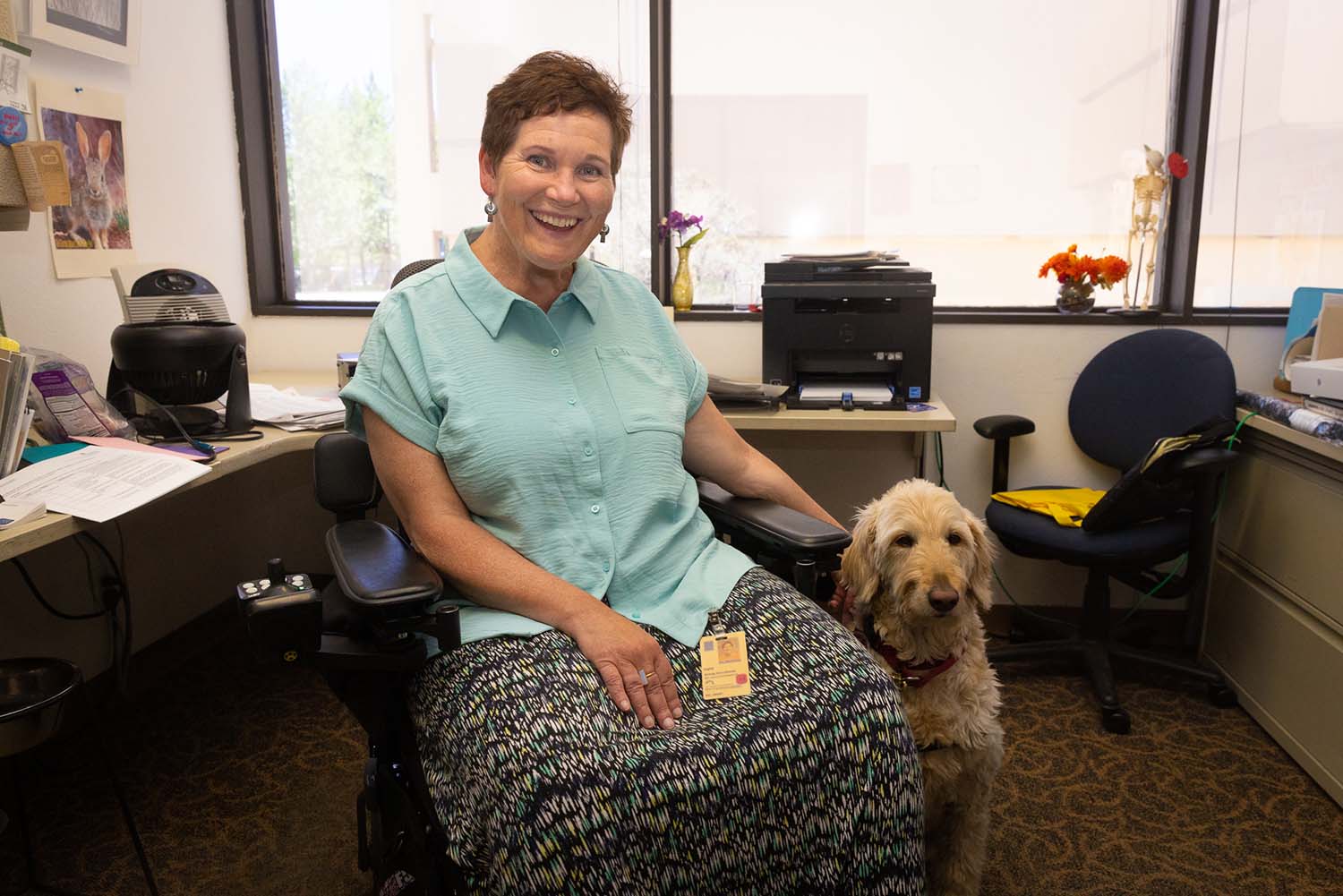 For many years of her adult life, Ingrid Hendrix, MILS, relocated to different cities often, perhaps trying to find something she felt was missing.
For many years of her adult life, Ingrid Hendrix, MILS, relocated to different cities often, perhaps trying to find something she felt was missing.
Then in 2001, she was offered a job at the Health Sciences Library & Informatics Center (HSLIC) at The University of New Mexico and found a place she could call home.
“I’ve now lived in Albuquerque longer than I’ve lived anywhere else,” she said. “I just love it here. It’s so welcoming and I think the people are super friendly.”
Hendrix was hired as the Nursing Services Librarian and stayed in that position for nearly 20 years. In 2020, she was promoted to the division head of Education, Consultation and Reference Services at HSLIC.
“I’m the manager of the department that’s historically known as ‘reference,’ but we do research, work with clinicians in the hospital and the clinics and help them with their research,” she said. “We also teach classes on how and where to find information.”
Hendrix, who has muscular dystrophy and uses a motorized wheelchair, has also taught classes to medical, nursing and occupational therapy students on caring for people with disabilities. She said the decision to create the course evolved out of her own experience being treated at UNM Hospital.
I realized that the health professionals that were caring for me were clueless on how to act with someone with a disability. Able-bodied people don’t necessarily understand what people with disabilities are dealing with
Hendrix then conducted a survey to UNM medical students and asked them if they learned about disability care in their curriculum. The answer was a resounding “no.”
“So, it’s kind of like my side-hustle,” she joked. “It doesn’t have much to do with my day job, but I just felt like it was so important, and it was obviously something that wasn’t being addressed in the curriculum.”
Despite working for HSLIC for more than 20 years, Hendrix said she still goes through complicated procedures to complete certain tasks on campus – hoops through which able-bodied people don’t have to jump.
One example is having to go to a different building with her service dog, Butler, in tow to find an accessible restroom. However, The University of New Mexico’s Office of Compliance, Ethics & Equal Opportunity recently began working on improving accessibility across campus and is in the evaluation phase of that plan.

Now, she said, it’s not on each individual Health Sciences department to make those types of accommodations. “They’ve made that change, which I’m happy about,” she said.
Overall – despite some challenges she continues to face – Hendrix loves her job at HSLIC and said it’s one of the main reasons she’s stayed in the area so long.
“One thing I really like about UNM, unlike some other places I’ve worked, is that it seems like it’s so easy to collaborate with people,” she said. “Getting into the department, teaching and interacting with the students and the faculty has really opened a lot of doors and given me a lot more opportunities than I’ve had other places. I just find that the people here genuinely want you to succeed.”
UNM Health Sciences and Services Building, First Floor
MSC09 5235
2500 Marble Ave. NE
1 University of New Mexico
Albuquerque, NM 87131
505-272-2728
HSC-Diversity@salud.unm.edu